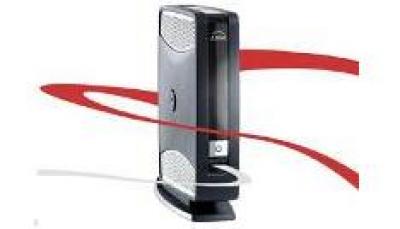Thin Client Maker Launches £128 Device

Several government departments are backing thin client technology including the Met Office and the Department for Work and Pensions
German thin-client specialist IGEL has released a thin client device which it claims is ideal for companies looking to cut costs and improve sustainability during the recession.
In a statement released this week, the thin client maker said that the IGEL One is designed for environments with around 250 users such as campus schools and colleges and even manufacturing production lines.
“The IGEL one is a simple and cost effective desktop solution that provides all the thin client benefits of improved security, lower power usage and better reliability, for a low entry price,” said US IGEL president Erhard Behnke. “As businesses look to cut their computing costs in these difficult economic times, the IGEL one is the perfect device for businesses that do not require a fully managed desktop.”
IGEL claims that the system runs on five different server protocols including Citrix Xenapp, Microsoft Terminal Services and NoMachine NX. ” The preferred solution can be chosen when the devices are booted for the first time. The device is then automatically locked to this solution,” the company said.
Proponents of thin client technology usually argue that it is more sustainable than traditional client server computing because the devices have greatly reduced power consumption – often doing away with the need to have cooling fans for example. However some of the gains made at the client end of the network are erased by the need for greater server infrastructure to host the apps and data which would normally reside on a traditional PC.
A recent study conducted by Fraunhofer Institute in Germany for IGEL claimed that a medium-sized enterprise with 300 workstations could save more than 148t CO2 emissions over a five-year period if 75 percent of the workstations in the company were changed to thin clients.
Speaking at the Green IT ’09 conference earlier this month, the director of supplier relationship and performance management for the UK’s Department of Work and Pensions (DWP), Frank Tudor said efficiency moves under consideration at the department include migrating 75 percent of DWP’s 140,000 desktops to thin clients over the next few years. “We recognise that a good proportion of our employees do nothing more than access LAN business applications – they don’t necessarily need MS Word Office, Powerpoint – if we can transform our applications to being web hosted we have a real opportunity to replace 75 percent of our desktops with thin clients,” said Tudor
Also speaking at the event was Steve Foreman, head of IT services at the UK’s Met Office who said the department is also planning to refresh its desktops and plans to migrate the majority of machines used for administration away from traditional PCs to thin clients but hasn’t extended that to all the desktops in the organisation due to some resistance from scientific staff. “Our scientists persuaded us that they needed the power on the desktop,” he explained.